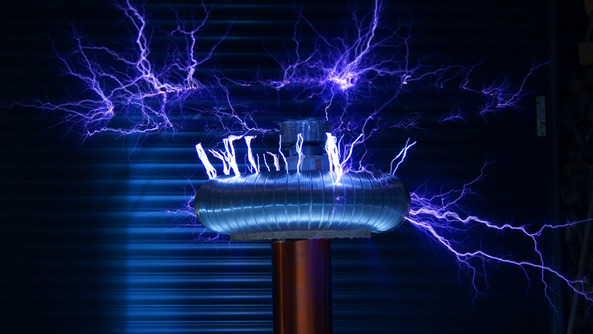Purchasing and installing a theater system in your home can be a thrilling experience. However, that feeling may not last long if you don’t get a home theatre power manager to keep your theater system in check.
So what does a power manager do exactly, and why is it important for your home theater system? Well, worry not because in the following article we’ll be discussing the exact use of a power manager, along with everything else you need to know about it.
Let’s get started!
What Is a Home Theatre Power Manager Used For?
So how does a power manager protect your home theater system? To answer that question, we’d first have to explain what a power manager is.
The purpose of a power conditioner (also known as a power manager) is to improve the quality of the power used by your electrical equipment.
In simple terms, a power manager is an AC power regulating and distributing device that provides your home theater system with surge protection and filters out dirty power which reduces or eliminates noise from your system completely.
There are a range of different theater power managers available on the market today all differing in their complexity.
The more complex ones even offer additional features like over/under voltage protection and sequential system power ON/OFF, but with an increase in complexity also comes an increase in price.
Moreover, there are several functions of a power manager in a multi channel home theatre system. Firstly, by regulating and distributing the power properly, it improves the quality of electricity which in turn improves the performance of your theater system as noise is reduced or eliminated.
Secondly, it protects your system from power surges and increases the lifespan of your equipment.
Why You Need a Home Theatre Power Manager
So, to get down to brass tacks, why is it important for you to buy a power manager? Well, in our experience, there’s very few people that don’t need one at all.
Whether you’re buying for added protection or improving the performance of your system, a home theatre power center is a must.
Especially for the people that live in an area with a high frequency of lightning strikes, or those who live at a location with frequent power surges.
These cases of ‘dirty power’ can at the very least cause a lot of disturbance and noise in your audio equipment and at the very most cause your equipment to malfunction or damage it beyond repair.
Hence, if you’re experiencing even minor voltage/frequency variations in your home, then we would suggest purchasing a home theatre power manager, just to improve the overall performance of your system.
An added benefit of installing a power manager is that you can be more organized as instead of having multiple wires laying around, they’ll all be plugged into the power manager, effectively connecting all your equipment into one device.
How much do Home Theatre Power Managers Cost?
The prices of power managers or power conditioners vary greatly according to their quality and complexity.
Some shops are even available for the low price of $50. But even though they may be marketed as power managers, they’re nothing more than surge protectors.
Which will work fine if you don’t have a big budget and are just looking to protect your home theater equipment.
However, if you’re looking for a power conditioner that filters out noise as well then, you’re going to have to spend at least $100-$150.
Moreover, if you can afford to increase your budget, you can get a great-functioning power manager that will effectively protect your equipment and isolate most of the noise in the $500-$1000 range.
Just keep in mind that the greater the price, the greater the noise filtration and protection! However, according to this Quora user, times have changed and the advancements in technology now enable you to build a whole kick ass home theater system in under $2,000!
So, we think if you spend some time researching the product, and visit a reliable store. You may find a power manager that is cheaper but does not sacrifice quality.
What’s the Difference between a UPS and a Power Manager?
UPS stands for Uninterruptible Power Supply, and it is basically a device with a backup battery that allows you a few extra minutes when a power outage occurs to turn off your sensitive equipment.
On the other hand, a power manager is a device that filters out dirty power, protects your equipment and distributes the power to your equipment.
How Long will a Power Manager Last?
Most high-end power managers have a three-year warranty period while some may even have a five-year period.
However, you don’t necessarily need to change power managers if the warranty period expires because depending on the power surges you experience, the device can hold out for a decade or even more in some cases.
Can all Studio Equipment be Plugged into a Home Theatre Power Manager?
Yes, all studio equipment including your display devices, audio equipment and projectors can be plugged into the home theater power manager, in fact, it is wise to do so.
That’s because detecting where the noise may be coming from and reducing it will prove difficult for you, so it becomes wiser to let the power manager handle it.
The Importance of Home Theater Power Managers: In Closing
Buying and installing a home theater system may give you great joy and a sense of accomplishment afterwards, but we still believe that the job isn’t finished until you buy a home theatre power manager.
In our opinion, buying and setting up a power manager is the last step in perfecting your home theater system.
Apart from the obvious noise filtration and power protection features that we’ve discussed in detail above, an underrated feature is the plugging in of all wires into a single device.
This allows you to clean up all the loose wires that may have been spread out all over the floor before, giving your home theater a cleaner and more organized look in the process.









